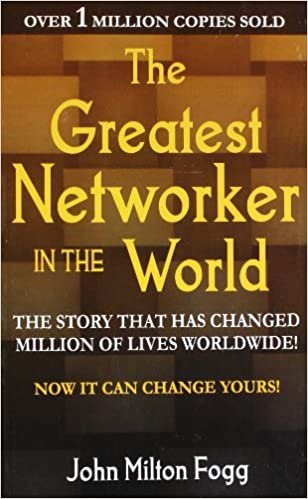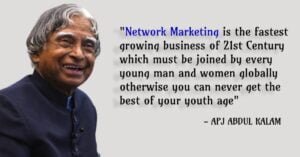IN MLM: AVOIDING THE MANAGEMENT TRAP
IN MLM: AVOIDING THE MANAGEMENT TRAP-PART 3 . Reinforce Self Sufficiency Rather Than Dependency, NETWORK MARKETING IS BASED on a team-building philosophy rather than a supervisory one. Perhaps the single most frequent cause of failure in network marketing is the mistaken belief that we must manage our down-line distributors.
Typically, after new associates spend their first month or two recruiting ten or fifteen friends, they end up devoting the rest of their time attempting to make those few people successful that’s what we call the (in mlm: avoiding the) Management Trap.
REVIEW OF ‘YOUR FIRST YEAR IN NETWORK MARKETING’-PART 1
Let us quickly point out that there is a significant difference between managing and supporting a down line organization.
It creates a false codependency, doing for others instead of teaching and encouraging them to do for themselves. The Management Trap creates two serious problems for a business builder. First, it produces weak and lethargic distributors because someone else is doing their work for them. And remember, “New blood is the lifeblood of any organization.” Continually sponsoring new associates adds vitality to an entire business. If you stop recruiting before you are earning enough to live comfortably, then you lose valuable ground.
IN MLM: AVOIDING THE MANAGEMENT TRAP- Supporting an organization, on the other hand, is part of the team approach inherent in network marketing.
It involves responding to legitimate requests on the part of any and all of your associates to help close a serious prospect or give them encouragement when they are feeling down. In this chapter, we intend to describe the difference between creating dependency in your organization and reinforcing self-sufficiency. It is critical that novice network marketers recognize the difference between productive activity and ineffectual. time-wasting practices.
Sponsoring Family Members and Building for Them
MARK discovered the pitfalls of supervising his family’s line the hard way when he recruited his own father. It hurt because I had always loved and respected my father. He never made much money while we were growing up, but he did start his own advertising and public relations firm. He also wrote two novels, one of which, Mantrap, became a bestseller in 1948. “I spent four months in Springfield, Missouri, helping my father build his organization. The problem was that all Dad’s people looked to me for leadership because I was doing everything for him.
The Messiah Complex
WITH both of us coming from theological backgrounds, we know what it’s like to be victims of the “Messiah complex,” which is very similar to the Management Trap, but with more emphasis on saving people. Given our backgrounds, at one time or another we wanted to save the entire world and every single person we sponsored. Each time we found a good person, especially one who appeared to need saving, we would end up dedicating much of our time managing that individual and his or her entire organization. But it doesn’t work, as Rene and I both learned over and over.
SUPER AMEER BANNE KI MASTER KEY (Hindi)
“Just Recruit a few and Drive Their Lines Deep”
One common misconception in the network marketing industry has led people down into the administration pit. That is the absolute antithesis of what is required to succeed in our profession. The three magic words are “GO WIDE FAST!” Recruit as many frontline distributors each month as you can, until you are earning at least $10,000 a month consistently.
Then you can relax a bit until you feel refreshed, only to run right back out there into the frontline recruiting trenches Unfortunately, some well-meaning authors and leaders have done a horrible disservice to our profession by misleading new distributors into believing that success in our industry requires less effort than it really does. Because this is a business of duplication, your people will do what you do. If you manage your downline, so will they. If you spend most of your time prospecting and recruiting, so will they.
IN MLM: AVOIDING THE MANAGEMENT TRAP- The secret is not managing your organization; rather it’s finding leaders, who will in turn find other leaders.
Generally, leaders must be found; they cannot be created. But many people have untapped leadership skills that do not manifest themselves until the timing is right. Recruiting is the only viable way to offset the inevitability of attrition. Their distributors don’t try to manage everyone; they continue to place their emphasis on showing the plan, thereby adding new frontline distributors.
Baby-Sitting the Downline
BEFORE we met, one of Rene’s most promising groups was in Rochester, New York. They sponsored a friend named Mike, who was their strongest catalyst. For nearly two years, everything went well. It was the epitome of how a long-distance networking organization can succeed. Then, almost in a single week, it all changed.
Mike, once the best recruiter in the whole group, had secretly slipped into a management model. His group was sizable and he felt it was time to devote his energy to overseeing their recruitment activities. Because of his strong personality, no one felt they could do anything as well as he did it. With Mike so readily available, his organization leaned on him for everything—presentations, hand-holding sessions, closings, sizzle sessions, product clinics, and pep talks on the phone. Depressed and discouraged, Mike phoned Gary, who suggested that he talk to Rene. The phone call went something like this:
Experience Abroad
One of our most graphic examples of the Management Trap occurred when we opened a foreign market. We developed a friendship and found that we shared many things in common, including similar life values. For us personally, it was the single largest launch of a foreign market in which we had ever participated. And yet, a year and half later, our frontline couple’s income continued to drop below their first executive check.
IN MLM: AVOIDING THE MANAGEMENT TRAP- How was this possible after such an awesome beginning?
Before the official launch, everything was kept to a simple system—no hotel meetings, just friends telling friends; no literature; not even products because they weren’t allowed to be sold yet. But almost immediately after the opening, the couple we sponsored stopped building their frontline and started managing their group.
The good news is that this is not the end of the story.
Two other top leaders followed them out of the business, but at the request of some of the emerging leaders in this group, we are continuing to work with them. They have learned the hard way this lesson of trying to watchdog their groups and have gone back to basics: building a small customer base; prospecting; going wide on their frontlines; working a simple, easily duplicated system out of their homes. We believe in this group and its leadership and are convinced that this time they are on track to set both economic and industry records in their country.
The Piano Story
We have a story we like to share with people early in their careers. It’s a great illustration that may help you in training and supporting your own organization. As the hacker exits, a pianist with thirty years of experience enters from the other side of the stage. He methodically and flawlessly plays a beautiful Mozart concerto. Perhaps one of the most interesting elements of human nature is our tendency—and to a greater or lesser degree we all possess it—to place blame elsewhere. The truth is, while many people criticize our industry after they fail, it’s not the fault of the industry. As in the preceding story, a poor musician can’t legitimately blame the piano for his lack of talent. You may want to remember this story and share it with new distributors.
IN MLM: AVOIDING THE MANAGEMENT TRAP- The Buy-In
OF all the possible fiascoes stemming from the Management Trap, “buying in” for your downline or teaching them to do this for their distributors is the worst. Marketers who get caught spending more time managing than recruiting often get snared into this trap, which has serious legal consequences. And when law enforcement goes after a buy-in pyramid deal, we all look bad by association.
Success in network marketing results from the creation of “real” volume as opposed to “promotional” volume.
Don’t ever allow yourself to be duped into believing that you can “buy” your way to the top of a company. You can’t!
“Just Give Me Your List and I’ll Do All the Work”
Their boardroom, on the fifty-fifth floor, overlooked the ocean and had seating for 300. We’ll call these distributors by the names of Jeff and Mary. For two months, everything went fine. Many prospects were signing up and their weekly volumes, in starter kits alone, were going through the ceiling. Just imagine the chaos.
Quit or Take It to the Moon
THE truth is that success in our industry does not result from extensive management. Success comes from a person with leadership skills having the vision, enthusiasm, and willingness to recruit other frontline leaders who, in turn, use and share the products or services. Then, simply teach them to duplicate the process. Then came the crowning blow—the upline leader who had supported him called to say she would not be available for a while because of personal problems that she needed to resolve.
IN MLM: AVOIDING THE MANAGEMENT TRAP- SUMMARY
- Managing an organization is a time-wasting practice that does for others what they should be doing for themselves, thereby creating codependency.
- Managing organizations for our families and friends often causes the very people we love most to fail.
IN MLM: AVOIDING THE MANAGEMENT TRAP-
Because this is a business of duplication, your people will do what you do:
- If you manage your downline, so will they; if you spend most of your time prospecting and recruiting, so will they.
- Baby-sitting a downline is not an effective way to build a business.
- The key to successfully building a large, dynamic organization is to steadily continue to prospect and recruit, creating a wide front line.
- Don’t make the mistake that results in nearly 50 percent of the failures in our industry: building your front line for the first few months, then stopping to manage your people.
- Merely overseeing the activities of your organization is not leading them, but rather misleading them into rearranging their deck chairs on the Titanic.
- Set your sights on the goal, consistently meet the steps outlined in your business plan, and don’t make excuses—whatever it takes, just do it!
- Of all the possible fiascoes stemming from the administration of your organization, “buying in” for your downline or teaching them to do this for their distributors is the worst.
- Promotional volume—that is, money spent on products, samples, and multiple kits—is initially a means of helping distributors meet volume requirements for qualification.
- Your business can survive without promotional volume, but failure to create Ls real volume, by not acquiring legitimate customers or not using all your own products, can lead to the collapse of your entire organization.
Network marketing is a business of distributors building their own front lines and teaching their people to duplicate that process.
- If each network marketer builds his own front line, following the advice “Go wide fast,” the depth will take care of itself, and the cream will always rise to the top.
- Support a large organization by teaching them three words: “You call me.”
- Be there for your downline to render moral support, coaching, and assistance in closing their prospects, but don’t try to do for them what they must do for themselves.
- Success comes to people with leadership skills, a sound vision, enthusiasm, and the willingness to put forth the effort to build an organization and find others who will do the same.




